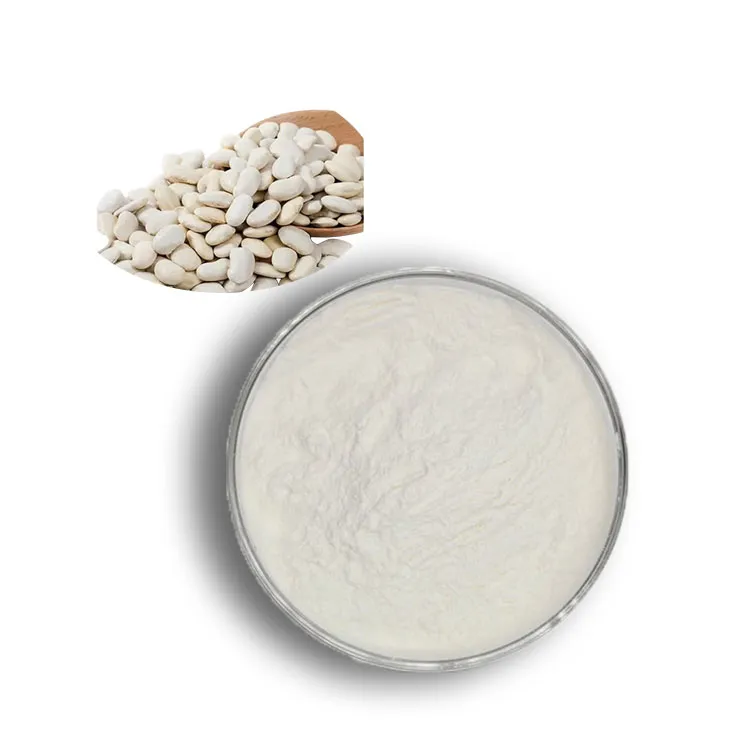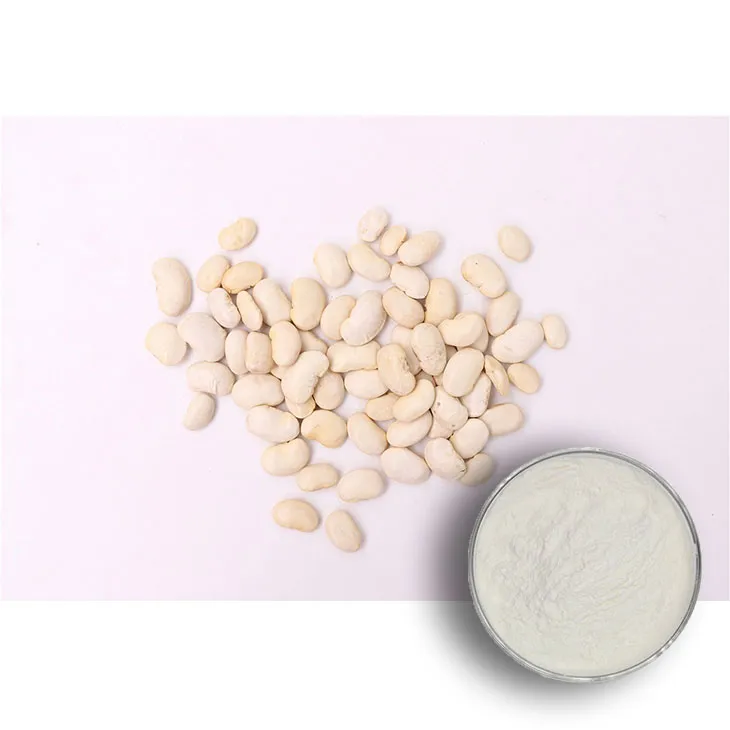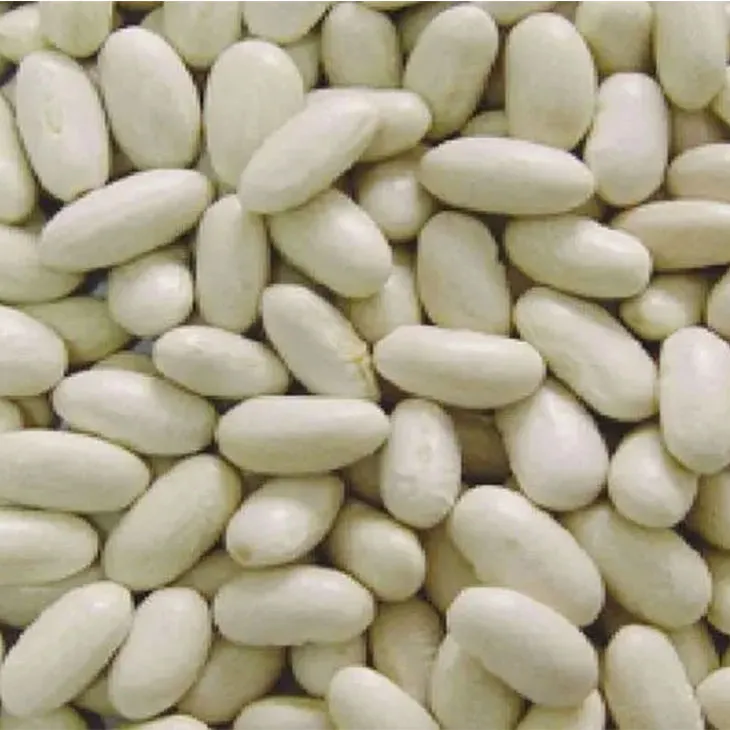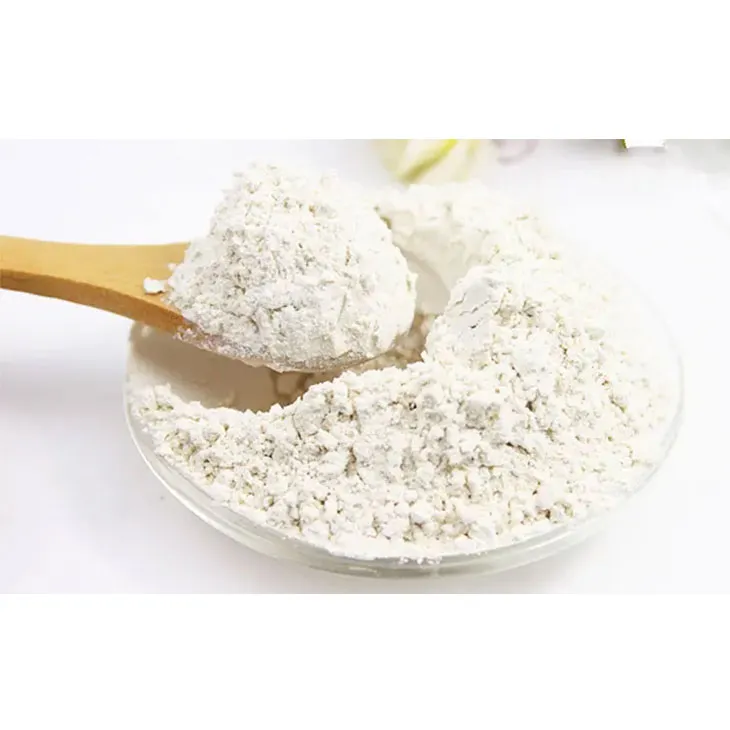- 0086-571-85302990
- sales@greenskybio.com
Read our comprehensive primer on high - quality organic kidney bean extract.
2024-12-17

1. Introduction to Kidney Beans
Kidney beans, known scientifically as Phaseolus vulgaris, are a popular and highly nutritious legume. They are named for their distinct kidney - shaped appearance. These beans have been a staple in many cuisines around the world for centuries, not only for their taste but also for their health - promoting properties.
Organic kidney beans are grown without the use of synthetic pesticides, fertilizers, or genetically modified organisms (GMOs). This makes them a more natural and potentially healthier choice compared to conventionally grown kidney beans.

2. Organic Farming of Kidney Beans
Soil Preparation: Organic farmers begin by preparing the soil in a natural and sustainable way. They often use compost, which is made from decomposed organic matter such as plant residues and animal manure. Compost enriches the soil with essential nutrients, improves soil structure, and enhances water - holding capacity.
Seed Selection: High - quality, non - GMO kidney bean seeds are carefully selected. These seeds are often sourced from heirloom varieties, which have been passed down through generations and are known for their adaptability to local climates and resistance to pests and diseases.
Crop Rotation: To maintain soil health and prevent the build - up of pests and diseases, organic farmers practice crop rotation. Kidney beans are rotated with other crops such as corn, squash, or wheat. This helps to break pest and disease cycles, as different crops attract different pests and have different nutrient requirements.
Pest and Weed Management: Instead of using synthetic pesticides, organic farmers rely on natural methods to control pests. This may include introducing beneficial insects such as ladybugs, which feed on aphids that can damage kidney bean plants. For weed control, they use techniques like hand - weeding, mulching, and cover cropping. Mulching with organic materials such as straw or leaves helps to suppress weeds, retain soil moisture, and add organic matter to the soil as it decomposes.

3. Advanced Extraction Techniques
Solvent Extraction: One of the common methods for extracting compounds from kidney beans is solvent extraction. In this process, a suitable solvent, such as ethanol or hexane, is used to dissolve the desired compounds from the ground kidney bean material. The solvent is then carefully removed, usually through evaporation, leaving behind the concentrated extract. However, it is crucial to ensure that the solvent used is food - grade and safe for consumption, especially when the extract is intended for use in dietary supplements or food products.
Supercritical Fluid Extraction: This is a more advanced and environmentally friendly extraction technique. Supercritical fluids, such as carbon dioxide, are used. Carbon dioxide in its supercritical state has properties of both a gas and a liquid, allowing it to penetrate the kidney bean material effectively and selectively extract the desired compounds. The advantage of this method is that it can operate at relatively low temperatures, which helps to preserve the integrity of the heat - sensitive compounds in the Kidney Bean Extract. Additionally, the supercritical carbon dioxide can be easily removed by reducing the pressure, leaving behind a pure extract without any solvent residues.
Enzyme - Assisted Extraction: Enzymes can also be used to aid in the extraction process. Specific enzymes are added to the kidney bean material, which break down the cell walls and make it easier to extract the valuable compounds. This method can increase the yield of the extract and may also enhance the bioavailability of the compounds. For example, enzymes can help to release bound phenolic compounds, which are known for their antioxidant properties.

4. Valuable Compounds in Kidney Bean Extract
Proteins: Kidney Bean Extract contains a significant amount of protein. Proteins are essential for building and repairing tissues in the body, as well as for the production of enzymes, hormones, and antibodies. The protein in kidney bean extract can be a valuable source of nutrition, especially for vegetarians and vegans who may rely on plant - based protein sources.
Fiber: Another important component of kidney bean extract is fiber. Dietary fiber is crucial for maintaining a healthy digestive system. It helps to promote regular bowel movements, prevent constipation, and may also reduce the risk of certain diseases such as colon cancer. The fiber in kidney bean extract can be either soluble or insoluble, each with its own set of health benefits. Soluble fiber can help to lower cholesterol levels, while insoluble fiber adds bulk to the stool.
Phenolic Compounds: Kidney bean extract is rich in phenolic compounds, which are known for their antioxidant properties. Antioxidants help to protect the body against free radicals, which are unstable molecules that can cause damage to cells and contribute to the development of chronic diseases such as heart disease, cancer, and neurodegenerative diseases. Phenolic compounds in kidney bean extract may include flavonoids, phenolic acids, and tannins.
Phytosterols: These are plant - based compounds that are structurally similar to cholesterol. Phytosterols in kidney bean extract can help to lower cholesterol levels in the body. They compete with cholesterol for absorption in the intestines, reducing the amount of cholesterol that is absorbed into the bloodstream.

5. Role in Promoting Health
Blood Sugar Regulation: Kidney bean extract may play a role in regulating blood sugar levels. Some studies have suggested that the compounds in kidney bean extract can inhibit the activity of enzymes involved in carbohydrate digestion, such as alpha - amylase. By slowing down the digestion of carbohydrates, it can help to prevent rapid spikes in blood sugar levels, which is particularly beneficial for people with diabetes or those at risk of developing diabetes.
Weight Management: The high fiber and protein content in kidney bean extract can contribute to weight management. Fiber helps to increase satiety, making you feel full for longer periods, which can reduce overall calorie intake. Protein also has a high thermic effect, meaning that the body burns more calories during the digestion and metabolism of protein compared to other macronutrients.
Heart Health: The various compounds in kidney bean extract, such as fiber, phytosterols, and phenolic compounds, can have a positive impact on heart health. Fiber can help to lower cholesterol levels, as mentioned earlier. Phytosterols also contribute to cholesterol - lowering effects. The antioxidant properties of phenolic compounds can help to protect the heart from oxidative stress, which is associated with the development of heart disease.
Digestive Health: As mentioned, the fiber in kidney bean extract is beneficial for digestive health. It can help to maintain a healthy gut microbiota by providing a substrate for the growth of beneficial bacteria in the intestines. A healthy gut microbiota is associated with improved digestion, enhanced immune function, and reduced risk of various diseases.
6. Incorporating Kidney Bean Extract into Daily Life
Dietary Supplements: One of the easiest ways to incorporate kidney bean extract into daily life is through dietary supplements. These supplements are available in various forms, such as capsules, tablets, or powders. They are often standardized to contain a specific amount of the active compounds, making it easy to control the dosage. However, it is important to choose high - quality supplements from a reputable manufacturer and to follow the recommended dosage instructions.
Food Additives: Kidney bean extract can also be used as a food additive. It can be added to baked goods, such as bread or muffins, to increase their nutritional value. It can also be added to smoothies, soups, or stews for an extra boost of nutrition. When using kidney bean extract as a food additive, it is important to ensure that it is compatible with the other ingredients and that it does not affect the taste or texture of the food product too much.
Home - made Recipes: For those who prefer to make their own food, there are many ways to incorporate kidney bean extract at home. For example, you can make a kidney bean paste by cooking kidney beans and then pureeing them with a small amount of the extract. This paste can be used as a spread on toast or as an ingredient in dips or sauces. Another option is to add the extract to homemade energy bars or granola, along with other nuts, seeds, and dried fruits.
FAQ:
What are the main compounds in high - quality organic kidney bean extract?
High - quality organic kidney bean extract is rich in various valuable compounds. It typically contains proteins, dietary fiber, vitamins (such as vitamin C, vitamin K), minerals (like potassium, magnesium), and certain phytochemicals. These phytochemicals may include phenolic compounds, flavonoids, and phytoestrogens which contribute to its potential health benefits.
How are kidney beans organically farmed for the extract?
Organic kidney bean farming involves several key aspects. Firstly, it requires the use of natural fertilizers like compost and manure instead of synthetic ones. Pesticides used are also from natural sources, such as plant - based extracts or beneficial insects are introduced to control pests. Crop rotation is often practiced to maintain soil fertility and prevent the build - up of diseases. The beans are grown in soil that has been free from synthetic chemical contamination for a certain period, usually several years, as per organic farming standards.
What are the advanced extraction techniques for kidney bean extract?
Some advanced extraction techniques for kidney bean extract include supercritical fluid extraction. In this method, a fluid (such as carbon dioxide) is brought to a supercritical state, where it has properties of both a liquid and a gas. This allows for a more efficient and selective extraction of the desired compounds from the kidney beans. Another technique is enzymatic extraction, which uses specific enzymes to break down the cell walls of the kidney beans and release the bioactive compounds more effectively. Solvent extraction is also commonly used, with solvents like ethanol or water - ethanol mixtures to dissolve and extract the compounds, followed by purification steps to obtain a high - quality extract.
How does high - quality organic kidney bean extract promote health?
The extract can promote health in multiple ways. Its dietary fiber content can aid in digestion and help regulate bowel movements. The presence of vitamins and minerals supports overall physiological functions, such as maintaining proper nerve function (with potassium) and promoting blood clotting (with vitamin K). The phytochemicals in the extract may have antioxidant properties, which can help protect the body's cells from oxidative damage. Additionally, some compounds may have anti - inflammatory effects, potentially reducing the risk of chronic inflammatory diseases.
How can high - quality organic kidney bean extract be incorporated into daily life?
There are several ways to incorporate high - quality organic kidney bean extract into daily life. It can be added to smoothies, where it blends well with fruits and other ingredients, providing an extra nutritional boost. It can also be used in baking, for example, added to muffin or bread recipes. Another option is to mix it with yogurt or oatmeal for a healthy and more nutritious breakfast or snack. Some people may also take it as a dietary supplement in capsule or powder form, following the recommended dosage instructions.
Related literature
- The Composition and Health Benefits of Organic Kidney Bean Extract"
- "Advanced Extraction Technologies for Kidney Bean Bioactive Compounds"
- "Organic Farming of Kidney Beans: Best Practices and Quality Assurance"
- ▶ Hesperidin
- ▶ Citrus Bioflavonoids
- ▶ Plant Extract
- ▶ lycopene
- ▶ Diosmin
- ▶ Grape seed extract
- ▶ Sea buckthorn Juice Powder
- ▶ Fruit Juice Powder
- ▶ Hops Extract
- ▶ Artichoke Extract
- ▶ Mushroom extract
- ▶ Astaxanthin
- ▶ Green Tea Extract
- ▶ Curcumin
- ▶ Horse Chestnut Extract
- ▶ Other Product
- ▶ Boswellia Serrata Extract
- ▶ Resveratrol
- ▶ Marigold Extract
- ▶ Grape Leaf Extract
- ▶ New Product
- ▶ Aminolevulinic acid
- ▶ Cranberry Extract
- ▶ Red Yeast Rice
- ▶ Red Wine Extract
-
Citrus Aurantii Extract
2024-12-17
-
Resveratrol extract
2024-12-17
-
Panax Ginseng Leaf Extract
2024-12-17
-
Moringa powder
2024-12-17
-
Carrageenan Extract Powder
2024-12-17
-
Purple Sweet Potato Extract
2024-12-17
-
Withania Somnifera Extract
2024-12-17
-
Beetroot juice Powder
2024-12-17
-
Epimedium extract powder
2024-12-17
-
Chasteberry Extract
2024-12-17





















